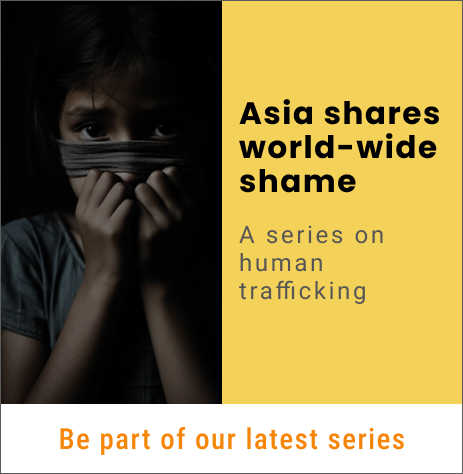A Catholic-run center in Japan’s capital Tokyo that has been serving migrants and refugees for over three decades has committed to strengthen ‘multicultural coexistence’ among people from various ethnic backgrounds.
Serving pastoral needs of migrants has always been a challenge for the Church, said Edwin D. Corros, a Filipino priest and director of the Catholic Tokyo International Center (CTIC), Vatican’s Fides news agency reported.
“The community of foreign Catholics represents an additional challenge for the local church, which must also maintain a Japanese Catholic identity,” said the priest who belongs to the Missionary Society of St. Charles Borromeo, also known as Scalabrinian Missionaries.

The center was founded in 1990 to offer pastoral services to migrants and refugees in Tokyo, on the centenary anniversary of the founding of the Diocese of Tokyo.
It was re-organized in 2008 as migrant Catholics slowly outnumbered native Catholics in Japan, Fides reported.
The center is now an apostolate for the service of migrants and refugees, and a point of reference for the pastoral care and support of foreigners.
Catholic Church in Japan has about 450,000 native Catholics and about 500,000 Catholics from various countries in Asia, Africa, South America and Europe.
“Migrants and refugees are often seen as disturbing the peace of the place they move to. Pope Francis dares to call them ‘men and women in search of peace,’” CTIC board chairman Archbishop Tarcisius Isao Kikuchi of Tokyo said in a statement.
Our Church wants to share the journey with all travelers “because God, who gives life, reaches out with love and mercy to all travelers,” said Kikuchi, president of Caritas Internationalis, the global confederation of Catholic charities.
Today, the center fulfills two main missions: it supports parishes in creating multicultural and inclusive communities and promotes the proclamation of Christ and evangelization among non-Japanese, according to Corros.
In Tokyo, Catholic parishes offer Mass and administer sacraments in various languages such as German, French, Spanish, Portuguese, Polish, Korean, Mandarin Chinese, Indonesian, Vietnamese and Tagalog (Filipino).
The center also accompanies and supports immigrants and their families individually in solving problems they face in their daily lives and provides care to families in need in the event of poverty, illness, or imprisonment.
Corros said that since Japan has prioritized receiving migrants to tackle demographic challenges posed by falling birthrate and rising elderly population, the Church helps foreign migrants integrate better into society.
“We help foreign Catholics to integrate into local parishes by not only offering sacramental and religious services, but also ongoing training and assistance for the psycho-emotional and socio-economic needs of migrants. In the context of Japan, pastoral care of migrants is very important,” he said
Despite the Japanese Church being a small minority and faith experience influenced by Buddhism and Shintoism, the Church attempts to maintain “Japanese Catholic identity,” the priest said.
“How to serve foreigners and locals alike requires enormous wisdom in evangelization,” he said.
Multicultural coexistence, which is based on unity in Jesus Christ is always a “communal effort,” he added.
As of 2022, Japan’s population stood at 124.2 million, according to the 2022 International Religious Freedom Report of the US Department of State.
Religious affiliation in Japan includes 87.9 million Shinto followers (48.5 percent) and 83.9 million Buddhists (46.3 percent) as many people follow both religions, the report explained.
The remaining groups include 1.9 million Christians (1 percent including Catholics), and 7.3 million adherents of other religious groups (4 percent) including Islam, Bahai, Hinduism, and Judaism.
Credit: Source link




